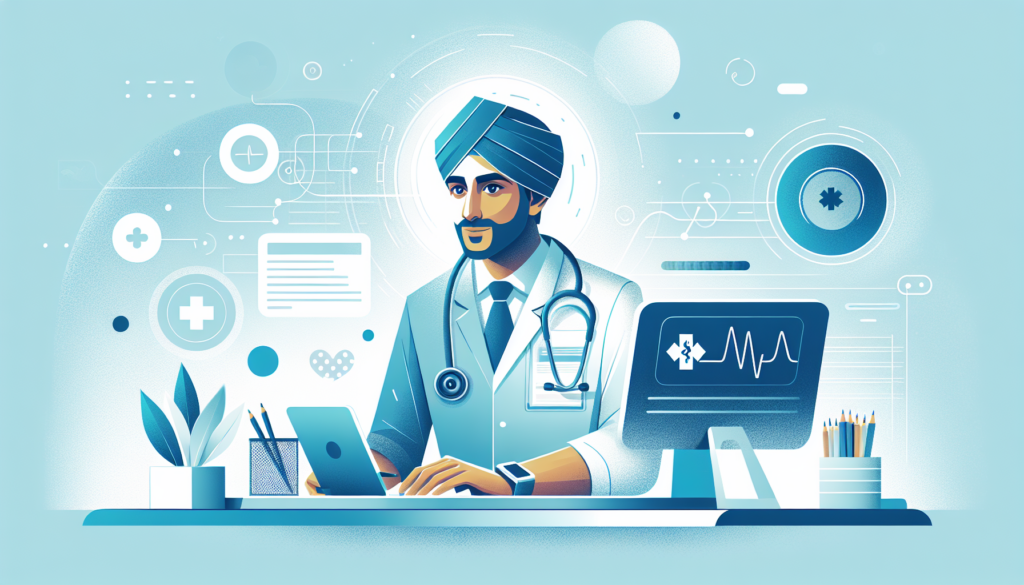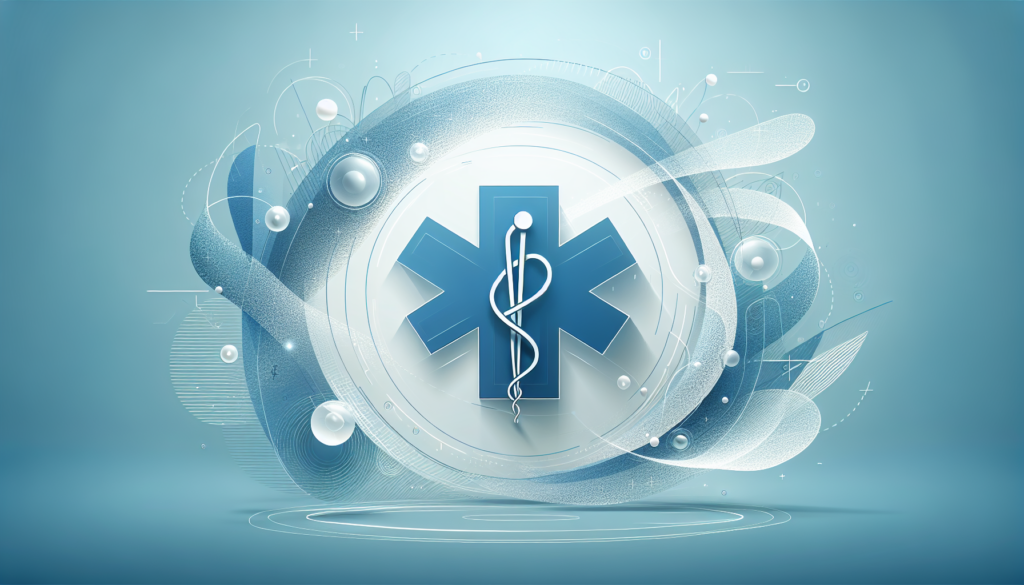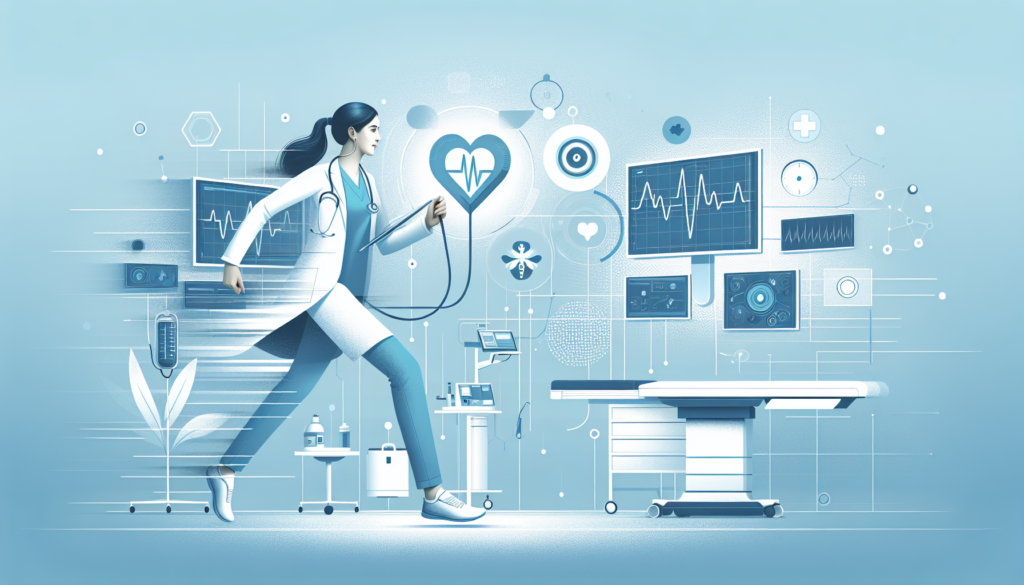Understanding Medical Transcription Tests: What Are They?
Medical transcription tests serve as a critical method for evaluating the proficiency of individuals aiming to transcribe clinical and diagnostic data accurately. These examinations are designed to assess a candidate’s ability to convert audio recordings of physician-patient interactions into well-organized, written documents that adhere to healthcare documentation standards. Such tests typically include various audio samples that cover a wide range of medical specialties, which may vary in terminology density, ambient noise challenges, and speech clarity of the medical practitioner.
For aspiring medical transcriptionists, these tests gauge their speed, accuracy, understanding of medical terminology, and general language skills. They’re structured to mimic real-world scenarios, providing a gateway to gauge how proficiently a candidate can capture and correctly format critical patient information. These skills are paramount because they ensure that medical records are reliable, precise, and easily comprehensible for ongoing patient care and administrative purposes, including insurance claims and legal records.
The medical transcription test is multifaceted, with several components designed to challenge different skills:
– Listening comprehension: The ability to understand and process complex medical information as communicated by healthcare professionals.
– Typing speed and accuracy: The capabilities of transcribing the spoken word into text without error and at a swift pace.
– Grammar and punctuation: Correct use of the English language, including sentence structure and punctuation, which is vital for maintaining the integrity of the medical record.
– Medical terminology and knowledge: Familiarity with the language used by medical professionals to describe procedures, diagnoses, anatomy, and physiology.
The scope of these tests extends beyond just the transcription of words, calling for a comprehensive understanding of the healthcare context in order to produce documentation that is both actionable and compliant.
Moreover, medical transcription tests are essential not just for individual certification but also serve as a benchmark for employers to identify qualified candidates who can maintain their operational standards. In the era where electronic health records (EHR) are omnipresent, the accuracy of these transcribed notes is critical. They feed directly into EHR systems, where high precision is non-negotiable, as these records are referenced for future medical decisions. The emphasis on a flawless transfer of information from speech to text is a testament to the importance of transcription in the larger ecosystem of patient care and health facility administration.
The Importance of Accuracy in Medical Transcription Tests
In the intricate world of healthcare, the precision of medical transcription cannot be overstated. Every note transcribed is a vital part of a patient’s medical record and is critical for subsequent care management. Accuracy in medical transcription ensures that healthcare professionals can trust the documented information as a true representation of a patient’s medical history and care. A lapse in this accuracy can lead to mistreated conditions, miscommunications, and severe medical errors, which could have otherwise been preventable. The significance of maintaining high standards in transcription accuracy underscores its role in the effective functioning of the healthcare system.
Medical transcription accuracy serves various pivotal functions. From informing ongoing patient care to serving as legal documentation in the face of medical litigation, transcribed notes are multifunctional. Thus, ensuring precise transcriptions is essential for:
– Maintaining continuity of care
– Aiding in the billing and coding process
– Providing evidence-based patient information for research
– Ensuring compliance with regulatory standards
The consequences of inaccurate transcriptions are far-reaching and impact not just the individual but the healthcare institution as well. Errors can result in incorrect treatment plans, inappropriate drug administration, and ultimately, endanger patient safety.
Furthermore, medical transcription lies at the heart of healthcare documentation and directly affects the quality of patient care delivery. Rigorous training, extensive knowledge of medical terminology, and a keen eye for detail are imperatives for transcriptionists to maintain the integrity of medical documents. Moreover, leveraging advanced technologies like AI-powered digital scribe services can significantly enhance the accuracy of medical notes. Such technology is designed to listen, understand, and transcribe with a high fidelity to the original spoken word, mitigating human error and providing a rapid turnaround.
The implementation of stringent quality control measures is also crucial for maintaining transcription accuracy. Healthcare providers must routinely audit and review transcribed documents to ensure they meet the required standards. Regular feedback and training are necessary to sharpen the skills of medical transcriptionists and to keep them updated with the latest medical procedures, drugs, and terminologies. An unwavering commitment to transcription excellence can vastly improve patient outcomes and optimize the overall healthcare process.
| Key Takeaway | Details |
|---|---|
| Role of Accuracy | Ensuring accuracy in medical transcription is essential for valid patient records, continuity of care, legal documentation, research data, and compliance with regulations. |
| Consequences of Inaccuracy | Inaccurate transcriptions can lead to medical errors, incorrect treatment plans, drug mishaps, and a compromise in patient safety. |
| Technological Enhancements | AI-powered digital scribe technology can augment the precision and efficiency of medical note-taking. |
| Quality Control Measures | Regular auditing, feedback, and training are crucial for ensuring the expertise of transcriptionists and the accuracy of medical documents. |
Preparing for a Medical Transcription Test: Tips and Strategies
The medical transcription test is a significant stepping stone for healthcare documentation specialists. To ensure success, meticulous preparation is crucial. Begin by obtaining a comprehensive understanding of medical terminology and anatomy. Delve into trusted medical dictionaries, anatomy textbooks, and pharmacology resources to familiarize yourself with the language of medicine. Remember, knowing the terminology is not just about recognition—it’s about comprehending the context within clinical scenarios.
Apart from enhancing your medical knowledge base, focus on honing your typing skills. Speed and accuracy are the cornerstones of effective medical transcription. There are numerous online platforms offering typing exercises tailored to improve both aspects. Moreover, acquaint yourself with varied accents and dictation styles through listening to a wide range of medical audio files. This will prepare you for the diversity of speech patterns and dictation speeds you’ll encounter in the actual transcription test.
Grasping Medical Vocabulary and Structure
As you study medical concepts, create a structured study plan that includes:
- Regular review sessions of medical prefixes, suffixes, and root words
- Breakdowns of complex medical procedures into understandable components
- Practice quizzes to test your knowledge progression
Furthermore, engage in exercises that involve converting jargon-filled medical reports into patient-friendly language. This not only affirms your grasp of medical terms but also fine-tunes your ability to communicate medical information clearly.
Mastering Audio Transcription Techniques
When it comes to the practical aspect of medical transcription – the audio to text conversion – be sure to practice with varied quality recordings. Transcriptionists often face the challenge of document accuracy against low-quality or unclear audio. In preparation, include in your regimen:
- Transcribing recordings with background noise
- Working with different speech rates and clarity levels
- Using transcription software tools to become familiar with functionalities you’ll likely use during the test and in professional practice
Dedicating a significant amount of practice to these areas can greatly enhance your transcription proficiency and confidence in handling a real-world medical transcription workload.
In conclusion, thorough preparation for a medical transcription test is multifaceted, requiring a blend of theoretical knowledge and practical application. Leveraging available resources, committing to consistent practice, and familiarizing yourself with the technological tools of the trade will place you in a strong position to excel in your medical transcription assessment.
How AI is Revolutionizing Medical Transcription Tests
The integration of Artificial Intelligence (AI) into the healthcare sector has brought about a transformative shift, particularly within the realm of medical transcription. Traditional transcription tests, which required manual effort and extensive hours of labor, are being rapidly replaced by AI-driven solutions that promise greater efficiency and accuracy. By harnessing natural language processing (NLP) and machine learning algorithms, AI-powered digital scribes like ScribeMD are able to listen, contextualize, and transcribe medical dialogue with nuanced understanding, thereby altering the medical documentation landscape.
One of the notable aspects of AI in medical transcription is its ability to reduce turnaround times significantly. Traditional methods that took days can now be processed in real-time or within a few hours. Furthermore, the technology underpinning AI transcription services continuously learns from corrections and user interactions, thus improving over time. These systems can adapt to the distinctive speech patterns, accents, and terminologies specific to healthcare providers, which enhances the precision of the transcribed notes.
- Real-time transcription capabilities
- Continuous learning from user interactions
- Custom adaptation to healthcare providers’ speech patterns and terminology
Another transformative feature of AI in this field is the sophistication with which it handles complex medical terminology and jargon. The robust NLP engines can recognize and accurately transcribe terms that are unique to medicine—a task that is notoriously challenging for the uninitiated. In addition, AI transcription software is equipped to manage data securely, ensuring that the sensitive nature of medical records is upheld in compliance with HIPAA and other privacy regulations. This combination of expertise and security engenders trust and reliability in the usage of AI for transcription in medical practices.
The enhanced capability of AI to integrate with various electronic health record (EHR) systems also cannot be overstated. AI transcription tools do not merely document medical dialogues but can also smartly format and input data into the right fields within EHRs. This level of interoperability ensures that healthcare providers have coherent, comprehensive, and easily accessible patient records—driving a more efficient workflow and better patient outcomes.
- Accurate transcription of complex medical terminology
- Strict adherence to privacy standards and security
- Seamless integration with EHR systems
Evaluating Medical Transcription Services: Beyond the Test
When considering medical transcription services, healthcare organizations often go no further than initial accuracy assessments. However, to ensure the best service for your medical documentation needs, it is essential to delve deeper. Look beyond the primary test by assessing the service’s ability to integrate with your current workflow and adapt to specialty-specific terminologies. A medical transcription service that can smoothly interact with electronic health records (EHRs) and understanding the subtleties of your practice’s language can greatly enhance efficiency and reduce the cognitive load on physicians.
Moreover, the turnaround time and reliability of the transcription service are crucial factors that need thorough evaluation. The speed at which documented notes are returned can greatly impact patient care and the overall productivity of the practice. Quick yet accurate transcriptions can lead to better patient flow and more timely interventions. Assess the service’s commitment to data privacy and security as well, especially in compliance with regulations such as HIPAA. Patient confidentiality is paramount, and any transcription service must be equipped with robust security measures to protect sensitive information.
- Integration with current systems and EHRs
- Adaptation to specialty-specific terminology
- Turnaround time for transcription deliverables
- Commitment to data privacy and security measures
In addition to these practical considerations, it is also worth evaluating the customer support and service agility. Effective communication with the transcription service provider can help resolve issues promptly and improve the service’s adaptability to the ever-changing healthcare environment. Willingness to receive feedback and the ability to provide customized solutions for unique challenges will distinguish a superior service from a mediocre one. Ultimately, choosing a medical transcription service is a strategic decision that influences the clinical workflow, the quality of patient care, and the operational efficiency of a healthcare provider.
- Effectiveness of customer support
- Service provider’s communication and feedback mechanisms
- Customizable solutions for unique clinical challenges



